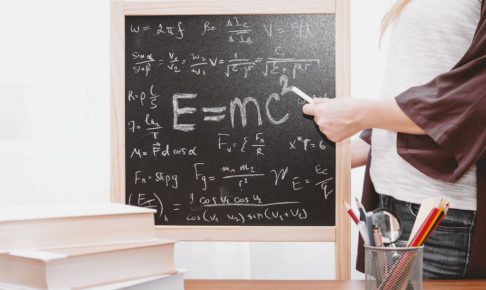英語
高校生
解決済み
2を教えてほしいです💦お願いします🙇
英語
( 70分)
1 次の文章を読んで 1~7の問いに英語で答えなさい。
It's Christmas Eve, December 24, 1914. The night is clear and cold/
Moonlight illuminates the snow/covered land separating the British
and German trenches outside a small town in northern France.
British military command feeling nervous sends a message to the
front lines: it is thought possible the enemy may attack during
Christmas or New Year. Extra caution will be maintained during this
period. The military command has no idea what's really about to
happen.
Around seven for eight in the evening/ British soldier Albert Moren
blinks in disbelief What's that on the other side? Lights flicker on./
one by one. Lanterns. he sees, and torches, and... Christmas trees?
/"Stille Nacht,
That's when he hears it - soldiers singing in German/"
heilige Nacht." Never before had the Christmas music sounded so
beautiful. I shall never forget it," Moren says later. It was one of
the highlights of my life.
Then, in response, the British soldiers start singing The First
Noel." The Germans applaud, and counter by singing "O Tannenbaum."
They go back-and-forth for a while, until finally the two enemy
camps sing "O Come, All Ye Faithful" in Latin, together. "This was
really a most extraordinary thing." soldier Graham Williams later
recalled, "two nations both singing the same Christmas music in the
middle of a war."
Events just north of a small town in western Belgium go further
still. From the enemy trenches, Corporal John Ferguson hears
Someone call out, asking if they want some tobacco. "Come towards
the light," shouts the German. So Ferguson walks out into no-man's
land into the field between both armies.
"We were soon speaking as if we had known each other for years."
he later wrote. "What a sight little groups of Germans and British
talking together almost as far as the eye can seel Out of the
darkness we could hear laughter and see lighted matches.... Here we
were laughing and chatting to men who only a few hours before we
were trying to kill!"
The next morning. Christmas Day, the bravest of the soldiers again
climb out of the trenches. Walking past the barbed wire, they go
over to shake hands with the enemy. Then they wave "come on!" to
those who'd stayed behind. "We all cheered." remembered soldier
Leslie Washington of the Queen's Westminster Rifles. "and then we all
came out together like a football crowd."
(A
Gifts are exchanged. The British offer chocolate, tea and cakes:
and the Germans share cigars, sauerkraut and schnapps. They make
jokes and take group photographs as though it's a big./happy reunion/
More than one game of football is played./using helmets for goal
posts. One match goes 3-2 to the Germans, another goes to the
British, 4-1.
In northern France/the opposing sides hold a joint burial service.
"The Germans formed up on one side." Lieutenant Arthur Pelham-
Burn later wrote./"the English on the other, the military officers
standing in front, helmets off, heads bowed in respect. As their
friends are laid to rest friends killed by enemy bullets - they sing
in English "The Lord is My Shepherd" and the same song in German
mein Hirt" their voices in unison.
"Der Herr
That evening, there are Christmas dinner parties up and down the
lines. One English soldier finds himself invited into the German held
zone to a wine cellar, where he and a soldier from southern Germany
pop open a bottle of 1909 French champagne. The men exchange
addresses and promise to meet up in London or Munich after the
war. You'd have a hard time believing it happened, if it weren't for
all the evidence.
(B)
For a long time, the Christmas truce of 1914 was treated as a
myth as nothing more than a sentimental fairy tale. After the
holidays the war resumed. Millions more soldiers were killed, and
what had actually happened that Christmas became increasingly hard
to believe. However, thanks to many, many interviews with the
soldiers who were there, we now know that more than 100,000
soldiers really did lay down their guns that day.
Hatred can be transformed into friendship and bitter enemies can
shake hands. That's something we can believe in - not because we
are entitled to be naïve, but because it actually happened. The peace
of Christmas 1914 was not an isolated case - similar things have
happened during many wars, but nowhere was it as widespread and
sudden as that Christmas.
() Rutger Bregman, Human Kind, A Hopeful History (Bloomsbury
Publishing, 2020) (-)
trenches 塹壕(ざんごう)
applaud
拍手喝采する
barbed wire
有刺鉄線
(陸軍) 伍長
Corporal
sauerkraut
schnapps
a kind of German pickles
an alcoholic drink
1914?
burial service 葬儀
champagne
truce
休戦
sentimental
シャンパン
感傷的な
Please write in full sentences to answer the following questions in
English.
1. Who lit up lanterns, torches, and Christmas trees on that night in
2. What happened after the lanterns and torches were lit?
3. What did Corporal John Ferguson do when he heard the voice
from the Germans?
2
3
4
5
6
7
4. Who are "they" in the underlined part (A) "Then they wave come
on!' to those who'd stayed behind”?
5. Paraphrase underlined part (B) by completing the following
sentence:
You can believe that it happened because
6. Did the war end as a result of the Christmas truce?
7. What central message does the writer want us to understand
from this story?
German soldiers did
He walks out
between
Then
ir
both
those who'd
and
into
the bravest of the soldiers
stayed behind.
Harted
armies.
doesn't for
nom mäns land
No, it didn't.
can
be
all evidence.
birler enemies
Can
-
shake
into the field
trans forned into
wave
hands.
it come on!" to
friendship
回答
回答
疑問は解決しましたか?
この質問を見ている人は
こちらの質問も見ています😉
おすすめノート
総合英語be まとめ(1)
14192
162
【英単】たった14語で14000語を理解できるようになる語
14070
18
【総合英語フォレスト】まとめ(4)分詞/比較
9630
155
最強の英単語覚え方!
7594
62















ありがとうございます!